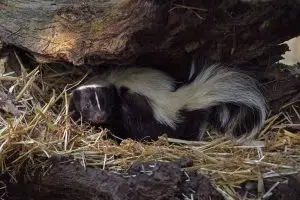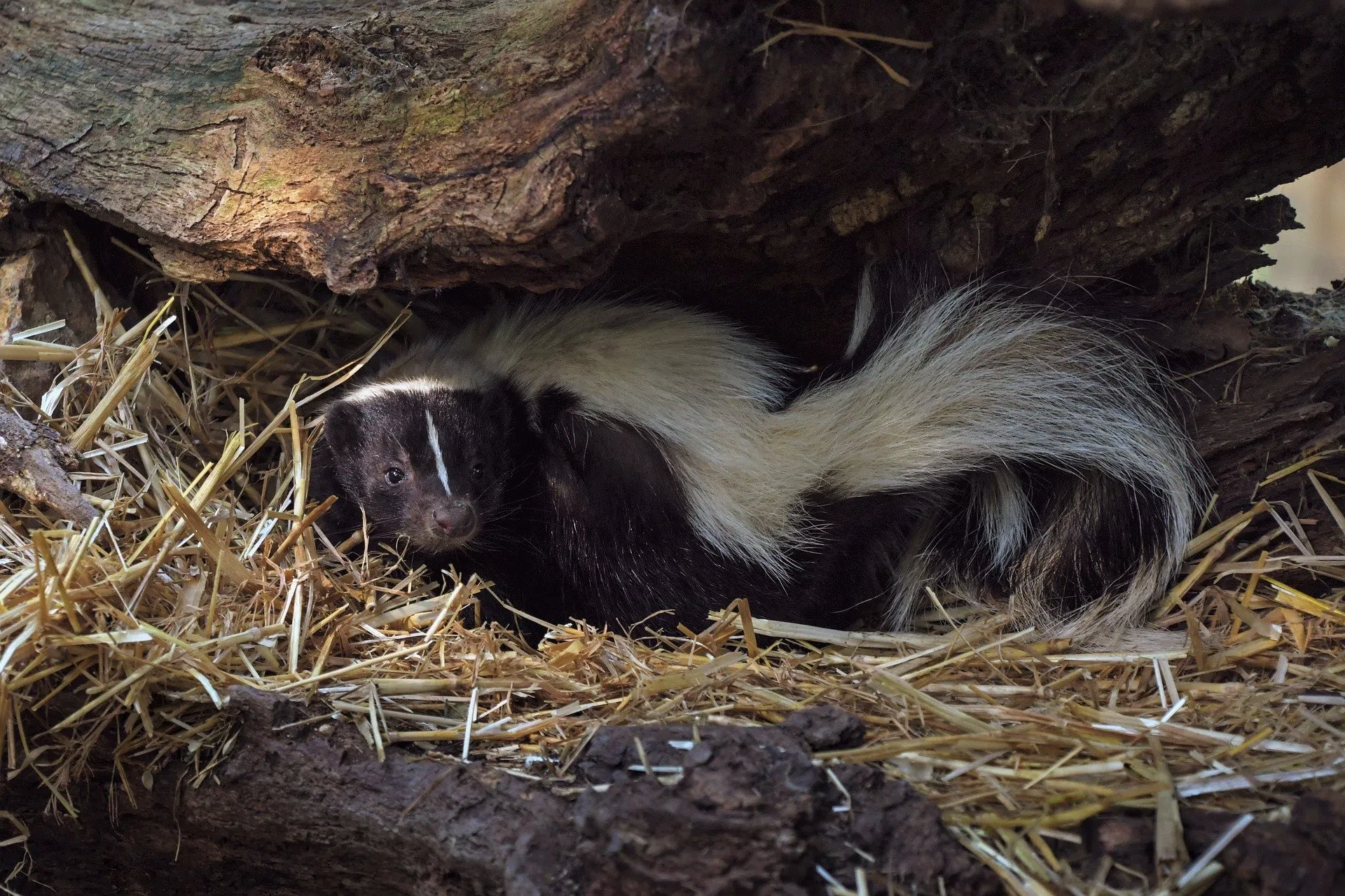
cc/Christels on Pixabay
There will be an increasing amount of skunks making appearances during the day. February and March are the mating season for the pungent pests.
“We get an increase of calls right now because of visible sightings…and we’re also getting an increase of calls because of the smell,” says Patrick Blewett, owner of Professional Wildlife Removal.
What are They?
Skunks are a member of the weasel family, most closely related to badgers. They are only found in North and South America. Skunks are omnivorous scavengers, normally foraging during the night.
Baby skunks are born knowing how to do the cutest thing
pic.twitter.com/M5nhWKebou
– The Dodo (@dodo) March 2, 2020
While many will view the smelly animals as a pest, Blewett stresses that they have an important role in the ecosystem.
“They eat a lot of grubs, bugs, and worms – they’re nature’s natural aerators so to speak,” he explains. “They also provide food for other animals like owls and things like that. And when they pass on, they provide food for things like vultures.”
More Facetime
During the changes of the season, skunks will act slightly differently. While they do not fully hibernate, skunks will sleep for days at a time. They have to be advantageous when they do make their appearances.
“Instead of going outside at minus 10, they’ll go out at plus two in the middle of the day to go to the nearest bird feeder and start foraging for some food,” says Blewett.
Blewett stresses that people should handle skunks as they would any other wild animal. “The most important thing is just to stop. People’s reaction is just to scream and run and that’s the worst thing you can do because you’re going to startle the skunk.”
When skunks get startled, that’s when bad things happen.
“Skunks will only spray when they get startled or if they’re threatened. If they’re sick or they’re injured or sometimes if they’re on a really good date.”
Be cautious while taking the garbage outside and keep a keen nose. Pets should be kept on a leash if they’re being let out to avoid any encounters with the smelly creatures.







